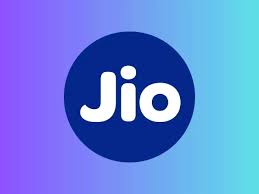🚀 Infosys On-Campus Recruitment Drive 2025 – Hiring System Engineers! 🔥
Are you a 2025 graduate looking to kickstart your career with Infosys? Here’s your chance! Infosys is hiring System Engineers across India. Check out the eligibility criteria and apply today! 🏆
| Infosys | |
| Job Role | Specialist Programmer (SP) |
| Qualification | BE, BTech, ME, MTech, MCA, MSc |
| Batch | 2025 |
| Experience | Freshers |
| Salary | ₹ 9.5 to 13 LPA |
| Location | Across India |
| Last Date | ASAP |
| Apply Link Below | |
|---|---|
🎯 Key Responsibilities:
🔹 Design, Develop, Validate, and Support software solutions aligning with project architecture.
🔹 Participate in knowledge-sharing activities to enhance service delivery.
🔹 Gather functional and non-functional requirements from specifications and business analysts.
🔹 Collaborate efficiently in Design, Development, and Testing Phases.
🛠 Technical & Professional Requirements:
🔸 Strong analytical and problem-solving skills.
🔸 Proficiency in coding and debugging.
🔸 Understanding of software development lifecycle (SDLC).
🔸 Good communication and teamwork abilities.
⚡ Selection Process:
📌 Online Test
📌 Technical Interview
📌 HR Interview
📢 How to Apply? Interested and eligible candidates can apply online via the official Infosys careers page. Don’t miss this golden opportunity! 🎯
💡 Stay updated with the latest IT/Software Job Alerts on Telegram – Join here 📲
| Jobs by Qualification | |
| B.Tech | BBA |
| B.Sc | B.Com |
| M.Sc | M.Com |
| MCA | MBA |
| BCA | M.Tech |
💡 Top 5 Interview Questions & Answers for System Engineer Role
1. What is Object-Oriented Programming (OOP)?
📌 Answer: OOP is a programming paradigm based on objects and classes. It emphasizes principles like encapsulation, inheritance, polymorphism, and abstraction to improve code reusability and modularity.
2. Explain the differences between a stack and a queue.
📌 Answer: A stack follows the LIFO (Last In, First Out) principle, while a queue follows the FIFO (First In, First Out) principle. Stacks are used in recursion, whereas queues are useful in scheduling and resource management.
3. What is the difference between an abstract class and an interface?
📌 Answer: An abstract class can have both abstract and concrete methods, while an interface only contains abstract methods (before Java 8). A class can implement multiple interfaces but extend only one abstract class.
4. How does garbage collection work in Java?
📌 Answer: Java uses an automatic garbage collection process to remove unreferenced objects from memory. The JVM periodically runs garbage collectors like G1, CMS, and Serial GC to free up space.
5. What are the different types of databases?
📌 Answer: There are relational databases (SQL-based like MySQL, PostgreSQL) and non-relational databases (NoSQL like MongoDB, Cassandra). Relational databases use structured tables, whereas NoSQL databases store unstructured or semi-structured data.




